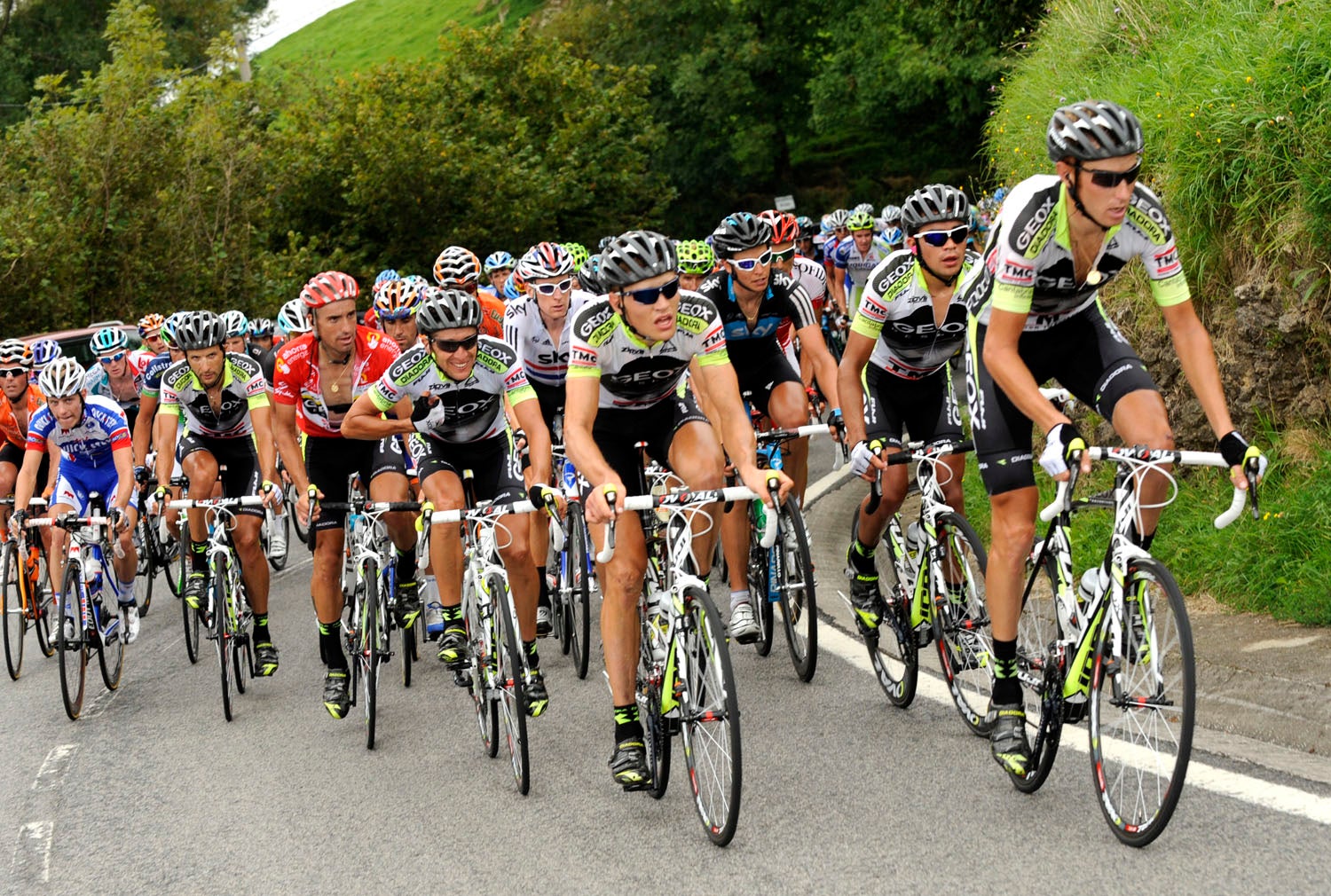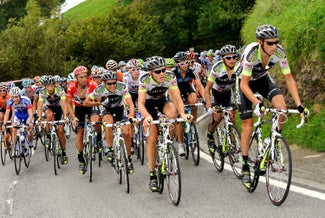'La crisis' hits Spanish peloton

Geox rides to protect Cobo. Photo: Graham Watson | <a id="www.grahamwatson.com" href="http://grahamwatson.com">www.grahamwatson.com</a>
The recent collapse of the Geox-TMC squad underscores a deeper malaise gripping Spanish cycling that sees dozens of professionals facing 2012 without contracts.
Geox-TMC management officially threw in the towel this week in their final-hour search to save the team for 2012. Efforts to lure in Venezuela and a Spanish charity group to salvage the squad for next season failed, meaning that the Spanish peloton will be down to just two teams in the top level for next season.
“In the end, it was impossible,” Joxean Fernandez Matxin told Marca. “At this point of the game, it was simply too late. I will keep looking for something for the future.”
Despite promising talks with Venezuela that petered out, Matxin said the team was also holding out hope for a deal with OID, a Spanish charity group that finds jobs for people with disabilities, but that also fell through, meaning that dozens of riders and staff are out on the street looking at a rather bleak holiday season.

Most of the team’s foreign riders on Geox-TMC have landed new rides, including Denis Menchov (to Katusha) and Mauricio Ardila and Fabio Duarte (both to Colombian teams).
Vuelta a España champion Juanjo Cobo is expected to sign with Movistar, where he rode without much success in 2010, but others, such as experienced Spanish pros David Blanco, David de la Fuente, David Gutierrez and Arkaitz Duran, will have a rough time finding a ride so late in the season as most top squads have closed out their rosters weeks ago.
The fate of Geox-TMC reflects a larger problem for the Spanish peloton, where dozens of pros are left without contracts for next season. The Spanish website www.biciciclismo.com counted more than 40 national pros without jobs for 2012.
Among the other established riders without contracts next season include Fran Pérez and Luis Pasamontes (both ex-Movistar), Oscar Pujol (Omega-Lotto), Josep Jufré (Astana), Aitor Pérez (Lampre) and Tino Zaballa (Miche). There are scores of lesser-named riders without jobs.
Not included in that number are several high-profile retirements, including Tour winner Carlos Sastre, longtime veterans Chente Garcia and Iñigo Cuesta.
Part of the problem is the shrinking presence of Spanish-backed teams in the elite ranks. Spain long-boasted four ProTour-level teams, but that number is reduced by half as Movistar and Euskaltel-Euskadi remain the only squads among cycling’s super-league.
It’s even worse at the second and third division, where Spain now only counts on four teams – Andalucia, Caja Rural, Orbea and Burgos BH – to help Spanish-born riders find rides in the peloton.
A similar shrinking effect in the Portuguese peloton – where Spanish riders often found refuge – means it’s harder than ever for Spanish riders to find employment.
Spain’s economic crisis is one of the major problems for Spanish cycling. With unemployment topping 20 percent nationally, it’s hard for Spanish business to spend money on relatively cheap cycling sponsorships when they’re slashing payrolls.
Public money, which backs such teams as Euskaltel-Euskadi as well as nearly every regional race within Spain, is also coming harder to come by as Spain is forced to make painful cuts across the board to reduce its growing debt.